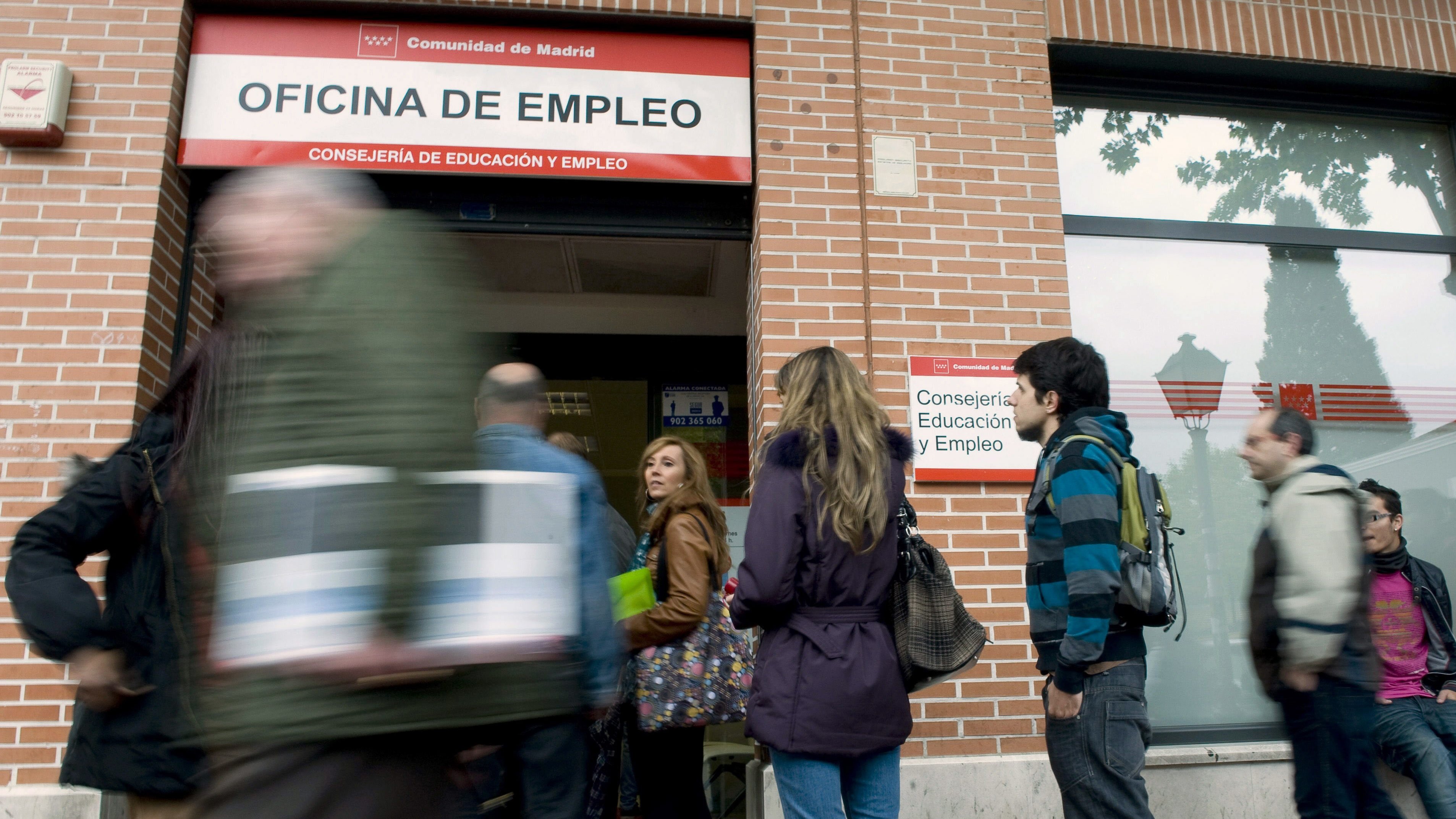Spain is suffering a mass exodus of youths
With unemployment still sky-high, this is the largest emigration since millions of people fled Franco’s dictatorship
epa03205857 Several unemployed people stand in a queue outside a regional government’s employment agency in Alcala de Henares town, outside Madrid, Spain, 04 May 2012. Spanish Labour Ministry’s sources announced the unemployment rate fell by 6,632 people, 0.14 percent, in April 2012 compared to a month earlier to record 4.74 million unemployed people, after the figures had been increased for eight consecutive months. EPA/FERNANDO VILLAR
Share

Ruben Fernandez, 28, is a busboy at a busy café in the centre of Oviedo, a small city in the northern Spanish province of Asturias. He grew up in a coastal village not far from here, and has a business degree from the local university, but when he looks around his home, he does not see much of a future. “I know I will have to leave in the next two years in order to get a job in my field,” he says, filling his tray with tourist-emptied cups of café con leche. “It’s sad, because I love my country, but there’s just nothing for young people here anymore.”
Despite its spectacular architecture, bustling cities, gorgeous beaches, fine food and wine, and rich cultural history, Spain is in a deep crisis. Unemployment stands at 24 per cent with no immediate sign of recovery. Since the economic crash of 2008, tens of thousands have been evicted from their homes, and UNICEF recently estimated that one in four Spanish children now live below the poverty line. The prospects for young adults are not much better, with half of those between the ages of 18 and 25 unemployed.
When—and if—he emigrates, Fernandez is thinking of either London (his English is passable) or Mexico City, where he understands there are opportunities in the finance sector. If he goes, he will become part of the biggest emigration movement to affect his country since millions fled Franco’s Fascist dictatorship in the 1950s. According to the latest figures, 79,306 Spanish citizens left the country last year, a 38 per cent rise from the year before. In total, however, more than half a million people registered as permanent residents (including Spaniards and non-Spaniards) left the country. Many were EU citizens returning home to places such as Poland, Morocco and Romania.
Paul Thomas, a British expatriate teacher and translator who has lived in Asturias with his Spanish wife and daughter since the 1980s, says his family will not be leaving—though he knows many who are thinking of it (both young people and British expatriate pensioners who have seen their investment incomes fall as the euro has risen against the pound). “It’s a tragedy for the country,” he says, “especially here, where the universities are still very good. Our education system churns out highly skilled professionals who simply take that expertise overseas. It’s a terrible loss for the future of Spain.”
As the total population continues to fall (according to the most recent figures, it’s down 310,456 to 46 million since 2011), Spain is doing what it does best: create cultural product from its misfortune. The drain, for instance, has resulted in a popular new TV show, Españoles en el mundo (or Spaniards in the World), inspired by the country’s burgeoning diaspora. The show is lighthearted, but some critics complain that the program glamourizes life abroad, luring more graduates to leave their homeland for greener economic pastures in Latin America and the rest of Europe.
Most experts lament the exodus as a social disaster. El Paìs, the country’s most respected left-leaning newspaper, has called it “a demographic blood drain without precedent.” Thomas, whose wife is a university lecturer, explains that when a drain like this occurs, the entire economic system is affected. “When you talk about universities in business terms, the student is not the client; society is. When those graduates immediately go abroad, the client—society—is not served. Therefore, the whole model fails.”
Many economists are beginning to speculate that if Spain’s great drain continues, the country will not be able to pull itself out of recession any time soon. The big winners are emerging economies, such as Mexico and Ecuador (the No. 1 pick for Spanish emigrants last year), which are beginning to benefit from the influx of Spanish graduates.
Fernandez adores the Spanish lifestyle, despite the country’s dwindling middle class. He is not leaving out of choice, but sheer economic survival. “You grow up being told to study hard and be ambitious, and then you work hard and get your degree and then what?” He motions around the café where he has worked for the past two years, cleaning tables four days a week. The answer is all too clear.